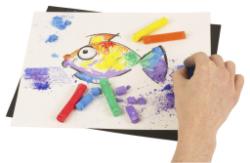The Missing Element in Student Service Experiences
There is little question that service projects and mission trips have become a regular part of most youth ministries: Feed a group of homeless men, clean up a city park, build a house for an underprivileged family. The intentions are grand, but do these experiences have any long-term impact on our youth? Not always.
The problem is that service and mission experiences often lack a critical element: reflection. In organizing what could be a life-changing experience, leaders focus too much time on fundraising, gathering supplies and gassing up vans, completely neglecting reflection and leaving meaningful connections to chance. When reflection is done (if at all), it’s often limited to conversations over poorly constructed questions or writing in a journal thrown together at the last minute.
When crafted carefully, however, activities for reflection can bring added meaning and the lasting impact we intend. Here are some suggestions to make this happen.
Understand How the Brain Works
David Kolb’s Experiential Learning Cycle describes how the human mind moves through stages to process experiences. Following a concrete experience, we reflect on what we have seen, heard, thought and felt, which results in the forming of new ideas, opinions and concepts. Ultimately, these ideas and opinions are tested in new experiences, and our attitudes and behaviors might change in ways that incorporate what we’ve learned. Youth leaders should build reflection activities into service experiences so this process can occur not accidentally but intentionally.
Ask Good Questions
Posing questions in a logical sequence can move youth through Kolb’s cycle. Service-learning veteran Kate McPherson suggests asking reflection questions in this order: What? So what? Now what?
• “What?” questions invite youth to reflect on their experience. (What happened today? What did you see and hear? What role did you play?)
• “So what?” questions invite a deeper reflection on thoughts and feelings. (How do you feel? What are you thinking about? What did you learn?)
• “Now what?” questions provide ways to consider what difference the experience makes. (What attitudes or behaviors might you change? How might God be calling you to use your gifts? What do you want to share with others?)
Start Early
Reflection is most powerful when the process is started early, even prior to the service experience. Sometimes called “pre-flection,” getting youth to think about their expectations early on can be useful later, such as when they’re asked to compare their actual experience with expectations identified beforehand.
Be Creative
Group conversations and journaling are good tools for reflection, but they don’t always invite creativity. Thinking outside the box will cater to diverse learning styles and provide ways for youth to utilize their unique gifts and talents. (See sidebar “Ideas for Creative Reflection” below.)
Think Process, Not Event
Few of us likely could point to the one service experience that molded our lives forever. It’s more common that our attitudes about service, mission and justice were developed over time. So, don’t expect that one day of house building in Mexico will lead teenagers to declare they all want to become missionaries. Be realistic. Don’t rush the reflection process. Take one step at a time and let the Holy Spirit work.
Ideas for Creative Reflection:
Paint a picture
Write poetry
Compose music
Produce a video
Snap photos
Create a collage
Compile a scrapbook
Design a Website
Create a blog
Make a flyer
Stage a debate
Write a story
Create a role play
Write a letter to the editor
Lead an awareness workshop




